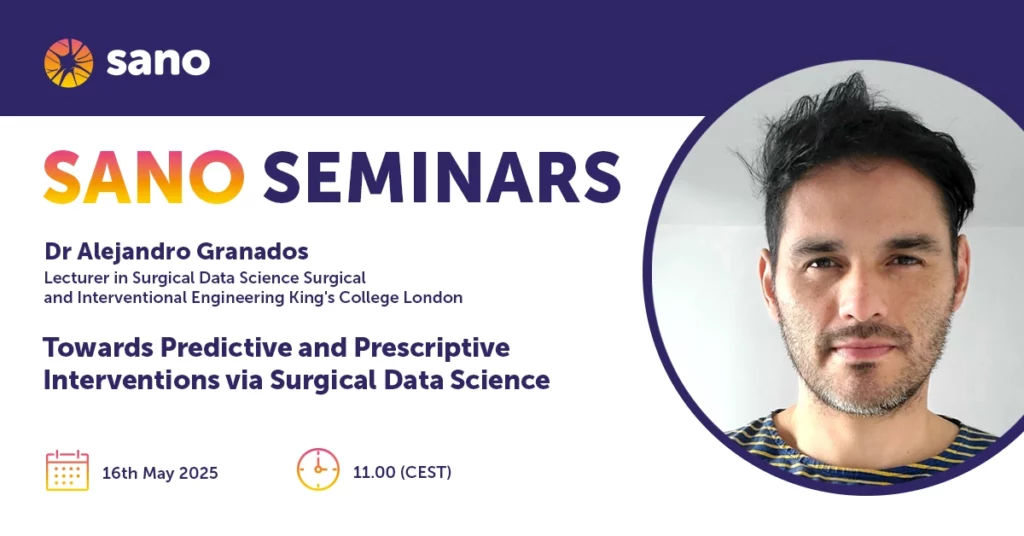163. Towards Predictive and Prescriptive Interventions via Surgical Data Science
Dr Alejandro Granados, Lecturer in Surgical Data Science Surgical and Interventional Engineering King's College London
Abstract:
In contrast to the past improvement in the quality of surgical care due to innovations in diagnostic and therapeutic technologies, future transformation in care will be enabled by data. Although artificial intelligence has begun to revolutionise medicine, progress has been slow in surgery. In this talk, Alejandro will discuss current progress and trends towards the reduction of surgical complications from a Surgical Data Science perspective. He will start with how Transformers and foundation models have paved the way to surgical workflow and skills analysis. Then he will show current work in language and vision models and how these are leading to research towards multimodal AI. Human-in-the-loop approaches will have a crucial role supporting the surgical team and this will be presented in the context of holistic sensing, autonomous robotics, and reasoning.
About the author:
His research has resulted not only in publications in leading international conferences and high-impact factor journals but also in two patents, a commercial prototype, a software tool used at the National Hospital for Neurology and Neurosurgery (UK), international art exhibitions, patient focus groups, and numerous public engagement activities.
Dr Alejandro Granados is a Lecturer in Surgical Data Science at the Surgical & Interventional Engineering Research Department, King’s College London. He did his PhD in Simulation and Modelling for Medicine and Surgery at Imperial College London (ICL) and has taken post-doctoral positions at Imperial, UCL, and King’s.
Alejandro’s research expertise is the result of working in multidisciplinary and diverse biomedical engineering-related projects looking at different types of data before, during, and after surgical interventions. His main research topics include workflow analysis, skills assessment, multimodal AI, causality, and autonomous robotics. His goal is to improve surgery from a data perspective by increasing the predictive and prescriptive capabilities of patient-specific cases in the reduction of surgical complications using AI.


